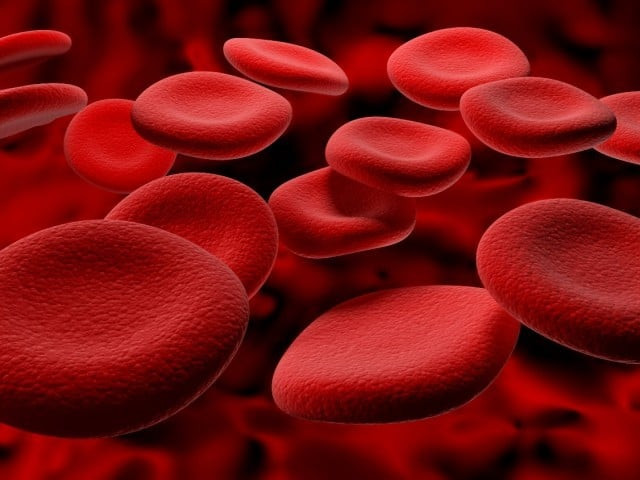Poverty: Thalasemia patient’s family finding it hard
Father says he cannot afford regular tests with his meager salary.

Poverty: Thalasemia patient’s family finding it hard
For years Shahbaz Masih has been managing his job as a passenger van driver while arranging four bags of blood every month for his son, Sagar Masih, who is suffering from thalassemia.
At times, he says, arranging blood is difficult. “I either get blood from one of my relatives or the blood bank at the district headquarters (DHQ) hospital in Gujranwala,” he says. He says earlier Sagar had needed two to three blood bags every month. The quantity of blood required by the child is increasing as he is growing up, he adds.
He says blood donations are difficult to sustain as donated blood also needs to be examined for infections. He said the screening facility was not available at the DHQ hospital and that he had to travel to Lahore for the purpose. He said he could no longer afford to pay for the frequent travel on his meagre wage.
Masih says he had recently sold his four-marla house and moved to a rented house in Ghazi Minara area to repay loans incurred to pay for Sagar’s blood tests and to provide for his family during his unemployment.
He says his daily wage from the driving job is just enough to feed the family. Sagar, a 5th grade student, recently left school because of difficulty in continuing regular studies due to weakness from the illness. He is now getting private coaching. “I want to continue studies so that I can get a decent job when I grow up,” says Sagar.
Safdar Masih, Shahbaz’s brother, says while he and other relatives have occasionally pitched in with financial assistance they cannot permanently support him. “I hardly earn enough to feed my own family.
At times, I have cut down on my family’s expenses and offered some money to him but I cannot guarantee that such an arrangement can continue for long,” he says.
Talking to The Express Tribune, Pakistan Medical Society chairman Dr Masood Sheikh said thallassemia patients require regular examinations to check for the level of iron in the blood. He says with transfusion of blood every four to six weeks iron levels in the body may go up. “High iron levels can cause diabetes, liver infections and heart failure,” he says. He says at times the patient’s spleen may swell and there may be a need to remove it.
Dr Sheikh said a number of deaths in teenagers suffering from thallasemmia have been caused by high levels of iron in their blood.
He promised that the PMS will arrange free blood tests for Sagar and register him with a blood donation agency.
He said a medicine, called deferoxamine (Desferal), was now available for removal of excess iron from the body but it must be used very carefully. He said research on developing an oral medicine was underway.
He hoped that quality of life and life expectancy of thalassemia patients will improve once the medicine became widely available.
Published in The Express Tribune, December 17th, 2011.



















COMMENTS
Comments are moderated and generally will be posted if they are on-topic and not abusive.
For more information, please see our Comments FAQ